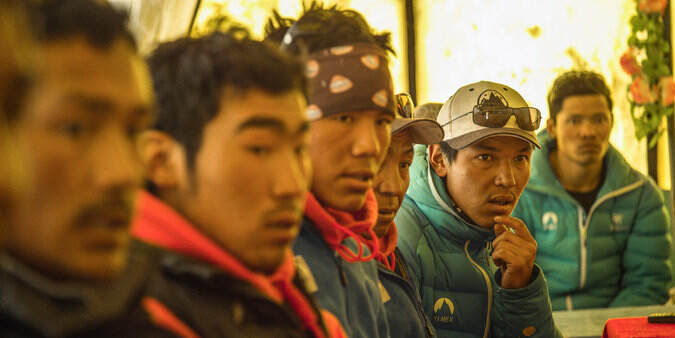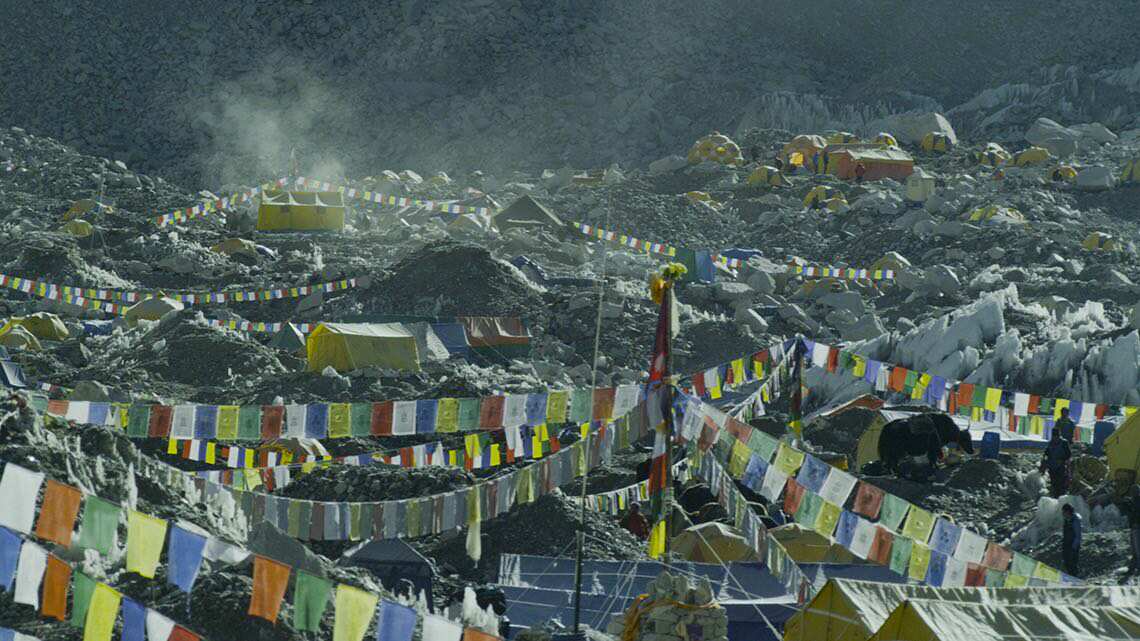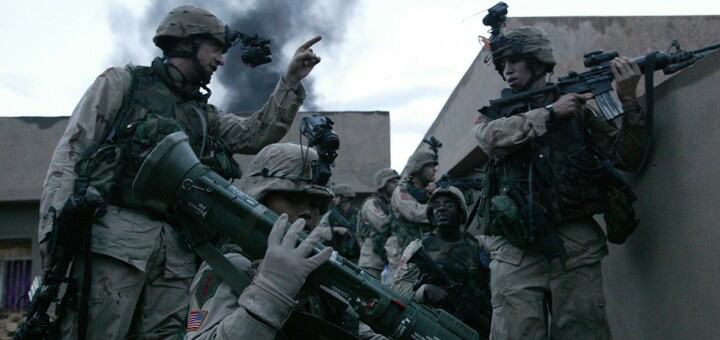Glenn here to discuss two Australian films on Oscar's documentary long list.
Jennifer Peedom’s Sherpa began life as an otherwise unassuming documentary about a man most people would never get to know. If the production of this Australian-made documentary about Mount Everest’s most revered guide had continued as planned, it would have no doubt been an informative and satisfying portrait of Phurba Tashi and his people – the Sherpa are an ethnic group – as well as their quiet village life in the mountains of Nepal.
But the production didn't go as planned...

As if by fate, the seeds of tragedy were planted early with Tashi’s wife expressing concern of his dedication to scaling the heights of the Himalayan peaks. Specifically she worries of his desire to break the record for ascents to the summit of Everest (or Chomolungma as the locals call it) given his brother had died in an earlier season and as seen in the story of Tenzing Norgay, the guide on Sir Edmund Hillary’s groundbreaking ascent, glory does not come to the Sherpa people for their efforts.
On April the 18th, 2014 during production of Sherpa, a major avalanche occurred that killed 16 Sherpa and set in motion a socio-economic strike that bought Nepal’s most vital industry – the government is seen profiting off of wealthy internationals on climbing expeditions, but not extending this revenue to the actual Sherpa – to its knees. These drastic steps in the aftermath of tragedy are documented by Peedom’s camera with intensity. For a filmmaker it's a case of right place at the right time, but Peedom's film is never exploitative of the Sherpa's plight.
Jennifer Peedom is no stranger to this material. Her previous work as director includes a dramatized documentary about Australian climber Lincoln Hall and the award-winning documentary short Solo, co-directed with Animal Kingdom’s David Michôd, about Andrew McAuley’s fatal attempt to cross the treacherous Tasman Sea in a kayak. She’s also worked a producer and then most notably as a high altitude director on the TV series Everest: Beyond the Limit. It was on that project that Peedom met Phurba Tashi, but nobody could have foreseen the tragic events that would unfold when they set out to document is his historic 2014 season and 22nd summit.

By pure chance I saw this at a film festival the same weekend as Everest’s opening weekend and like the best documentaries became immediately disinterested in what Hollywood’s take was. Peedom’s film gets great narrative heft from the pack of wealthy tourists who are stuck at a high altitude camp away from both the danger of the mountain above and the drama of the strike below. Some of the trekkers show genuine empathy for the Sherpa people, while others grotesquely complain that they have paid their $75,000 and demand to see the Everest peak. But it is her access to the Sherpa themselves that makes this film the achievement that it is. Without her bond to Tashi – and as a result his family and the wider Sherpa community – the film would lack the personal essence that makes it more than just another mountain-climbing doc and something far richer and more satisfying.
If Peedom, a relative newcomer to film, stumbled across the escalation of real life drama by accident, then the same certainly cannot be said for two-time Oscar-winning veteran documentarian Bill Guttentag and his work Only the Dead See the End of War. Guttentag has joined forces (so to speak) with Australian war reporter Michael Ware to co-direct this collage of the Iraq war, a video diary of Ware’s time on the ground in Iraq that makes for a profoundly damning experience. It’s an often unflinching look at the CNN and Time reporter’s experience as he attempts to make sense of a war that was increasingly making no sense at all.

Only the Dead’s greatest asset is the way it allows viewers a sense of Baghdad as well as the greater Iraq. We come to learn the cities and the people and even the individual streets as Ware’s camera, sometimes hidden but most of the time remarkably out in the open for all to see, follows an infantry of soldiers or a pack of suicide bombers preparing for battle. Given this is assembled mostly from his own war correspondents videos, Ware is at the centre of most of the footage and your response to the film will largely depend on your response to him and his true blue blokey personality. Most of Only the Dead's most gruellingly powerful moments come when the focus isn't on him. The decision to include footage of a colleague’s beheading – video that many people (like myself) would have consciously avoided watching until projected in front of them – is confronting and disturbing. The decision to end the film with a protracted sequence showing American soldiers choosing to not administer medical help to an Iraqi man dying on the pavement in front of them is essentially damning.
That particular sequence is horrific and is perhaps the perfect denouement for Guttentag and Ware’s film. Considering the war is still going on, how else to finish the film than in a place of complete and utter disillusionment?
Nathaniel is currently predicting Sherpa and I hold out hope it will make it. For those wishing to see them, Sherpa is still doing the festival circuit and will eventually play on the Discovery Channel. Only the Dead will air on HBO.